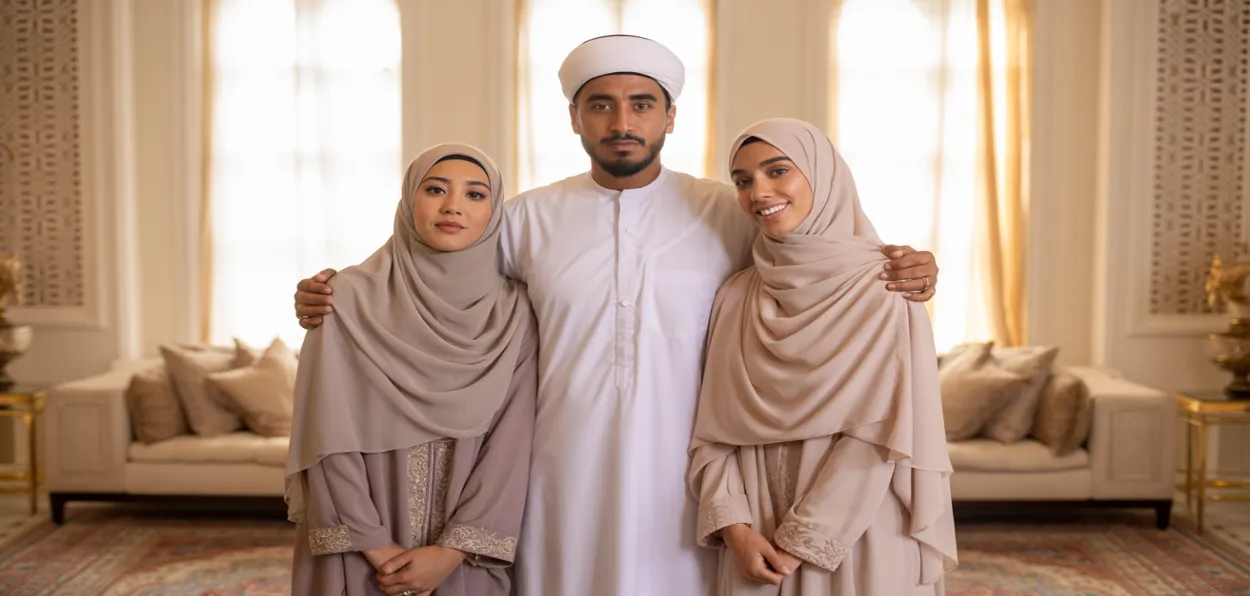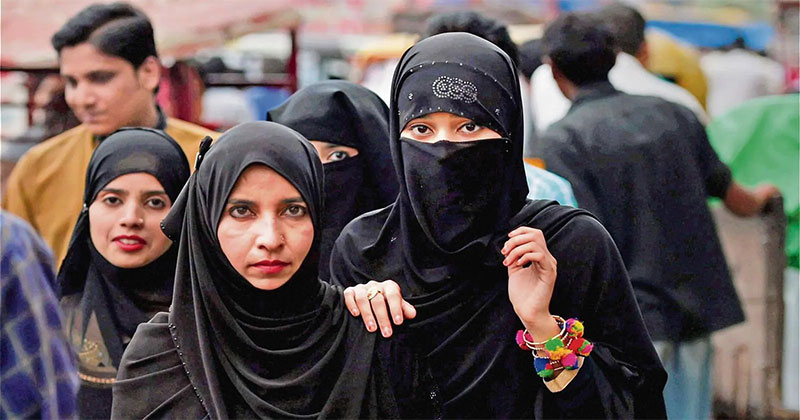
A Muslim man has a right to marry more than once as per the Muslim personal law. There are only two requirements: he should be fair to all his spouses; he should have the capacity to take care of them.
However, in a new twist, the Kerala High Court has ruled that for a second or third marriage to be legally registered, the first wife will have a right to be heard on the matter.
While the court ruling will now apply to all second marriages registered by local government bodies under the Kerala Registration of Marriages (Common) Rules 2008, will it apply to marriages registered in the mosque or mahal committees?
A petitioner had approached the court this year after the registrar refused to register his second marriage under the Rules 2008.
The petitioners Muhammad Shareef C, 44, from Kannur and his second wife Abida TC, 38, from Kasaragod, had got married almost a decade ago in 2017 under Muslim personal law. However, he approached the local self-governing bodies to register his marriage this year. The LSD refused, saying the first wife should also be given a hearing.
The petitioners went to court saying they had a right under the Shariat to remarry and hence their marriage should be registered.
 Muslim women
Muslim women
While the nikah remains valid, the registration of the marriage under civil laws invokes the legal benefits related to inheritance, visa, name changes, decisions on health and surgery, property, bank nominations and several other rights. Hence, the LSD was reluctant to register without asking the first wife and sought to send a notice to her.
The High Court has seconded this concern by allowing a hearing to the first wife before a second marriage is registered.
Advocate Mohammad Shakur says, “The court ruling has empowered the first wife to challenge a second marriage in the family court. While the court or LSD does not say that the second marriage is invalid. It just includes the first wife in the procedure, as it has financial (and emotional) implications for her and her children.
“For anyone who feels that human beings are more important than religion or law, this is a great ruling.’’
The Court ruling tries to give a voice to the first wife when her husband officially decides to give her rights away to a second or third wife, he explained.
“The registrar will give a hearing to the first wife before registering a second marriage. But will the mahal committees of the mosques where nikahs are registered under Shariat also seek the view of the first wife? ‘’ asks Shakur.
If the mahals believe in fairness and rights of the women, it would also accept the law of the land, he adds,
When a second marriage is registered by the local self-governing body, like a panchayat, the following are the consequences:
The second wife gets legal recognition, inheritance rights; children from the second marriage get a share in property; the first wife’s share is reduced.
Shakur points out that the court ruling does not question the validity of the second marriage. It is only making the hearing of the first wife a part of the procedure so that her rights are not left out.
The Kerala High Court
So even though Mohammad Shabbeer and his wife have been married for the past ten years, their marriage remains valid. However, his first wife can now go to the family court and seek her rights.
The registration is compulsory for all marriages since 2008, and the registrar has not refused to register the marriage. He merely insisted that the first wife be made a party in the case, as it involves her rights too.
This led to the petitioners going to court.
Says Shakur, "A second marriage under Shariat has only two requirements: the capacity of the husband to take care of his wives and just and fair treatment of all the spouses. So, it is fair that the first wife is asked about these."
Islamic scholar Onampally Faizy said that the option of asking for the first wife’s consent or opinion is not there in Islamic law and hence can be challenged in a higher court. But I don’t think it will be challenged as it involves the rights of women, he added.
ALSO READ: Business leader Sirajuddin Qureshi changed mindset on women's education
Remarking on the practice of polygamy, he said that Shariat, while allowing polygamy, requires the husband to be fair and just to all his wives. “It further adds that it is difficult to be fair and just. However, this practice is allowed mainly to keep men from drifting away from their families,” says Faizy.
